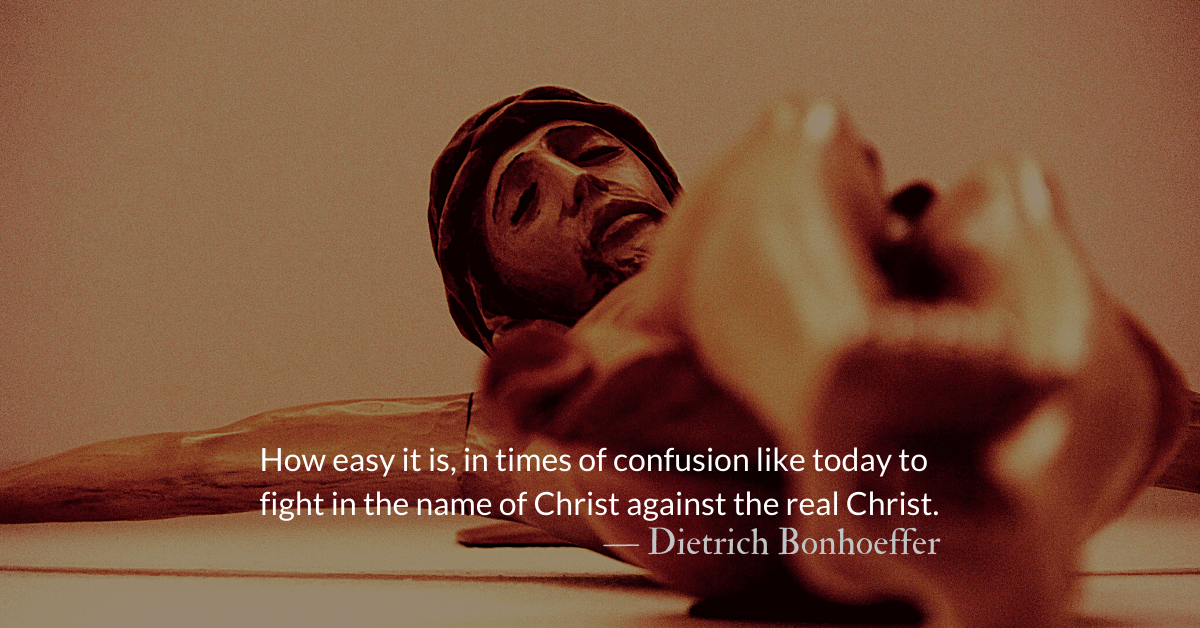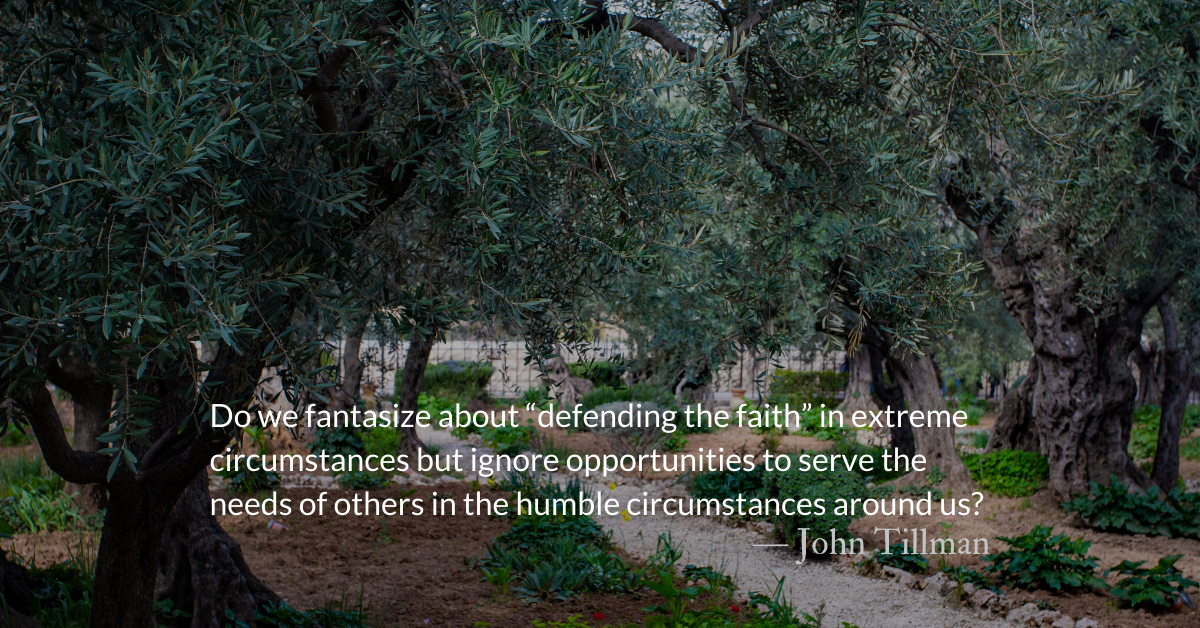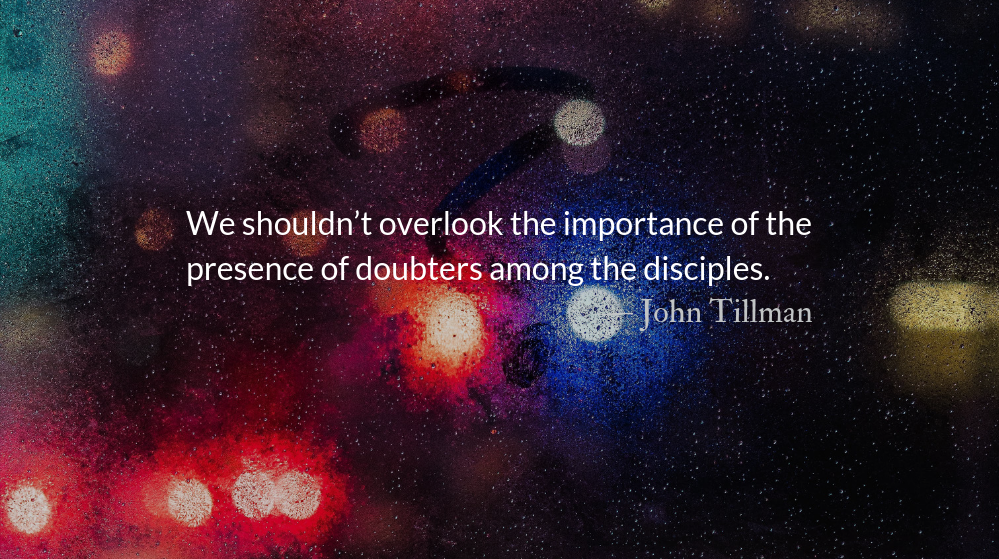Scripture Focus: Matthew 17.22-23
22 When they came together in Galilee, he said to them, “The Son of Man is going to be delivered into the hands of men. 23 They will kill him, and on the third day he will be raised to life.” And the disciples were filled with grief.
Reflection: Way of the Cross — A Guided Prayer
By John Tillman
Through the rest of this week, pray the words of scripture interspersed with those of Dietrich Bonhoeffer. In this prayer we struggle, along with Peter, and Jesus himself, to accept the way of suffering.
Imagine Christ, victorious. A champion. Beneficent. Are you comfortable with the victorious Messiah?
A Christ who brings earthly victory enjoys near-universal welcome.
God’s way in the world leads to the cross and through the cross to life. — Dietrich Bonhoeffer
“From that time on Jesus began to explain to his disciples that he must go to Jerusalem and suffer many things at the hands of the elders, the chief priests and the teachers of the law, and that he must be killed and on the third day be raised to life.” Matthew 16.21
Imagine Christ, humiliated. Crushed. Suffering. How uncomfortable does the suffering servant make you?
Everyone rejected the suffering Christ—even the closest of his disciples.
“Peter took him aside and began to rebuke him. ‘Never, Lord!’ he said. ‘This shall never happen to you!’”
“Jesus turned and said to Peter, ‘Get behind me, Satan! You are a stumbling block to me; you do not have in mind the concerns of God, but merely human concerns.’” Matthew 16.22-23
How easy it is, in times of confusion like today to fight in the name of Christ against the real Christ. — Dietrich Bonhoeffer
Often our discomfort with the suffering Christ is connected to our current level of comfort.
In our afflictions, we are glad to find the suffering Christ joining us.
But in our bliss and blessings, we do not wish to join him on his path.
Ask the Holy Spirit to help you assess your level of comfort, your level of acceptance of the suffering Christ, and your willingness to step into suffering, embracing it as the path to life.
For this reason, do not be alarmed, do not be afraid—be faithful! But what does being faithful mean here other than standing and falling with the word of Christ, with his preaching of the kingdom of peace. — Dietrich Bonhoeffer
Pray through these words of Christ:
“Whoever wants to be my disciple must deny themselves and take up their cross and follow me. “Whoever wants to save their life will lose it, but whoever loses their life for me will find it.” Matthew 16.24-35
Divine Hours Prayer: The Request for Presence
Early in the morning, I cry out to you, for in your word is my trust. — Psalm 119.147
– Divine Hours prayers from The Divine Hours: Prayers for Summertime by Phyllis Tickle
Today’s Readings
Jeremiah 3 (Listen – 4:40)
Matthew 17 (Listen – 3:46)
Read more about Looking Back at Good Friday
Good Friday is not just one day of the year. It is a day relived in every day of the world, and of our lives in the world.
Read more about Proclaiming The Lord’s Death and Ours
His renunciation of the empire as a kingdom of this world takes place not at Golgotha but at the very beginning. — Dietrich Bonhoeffer






